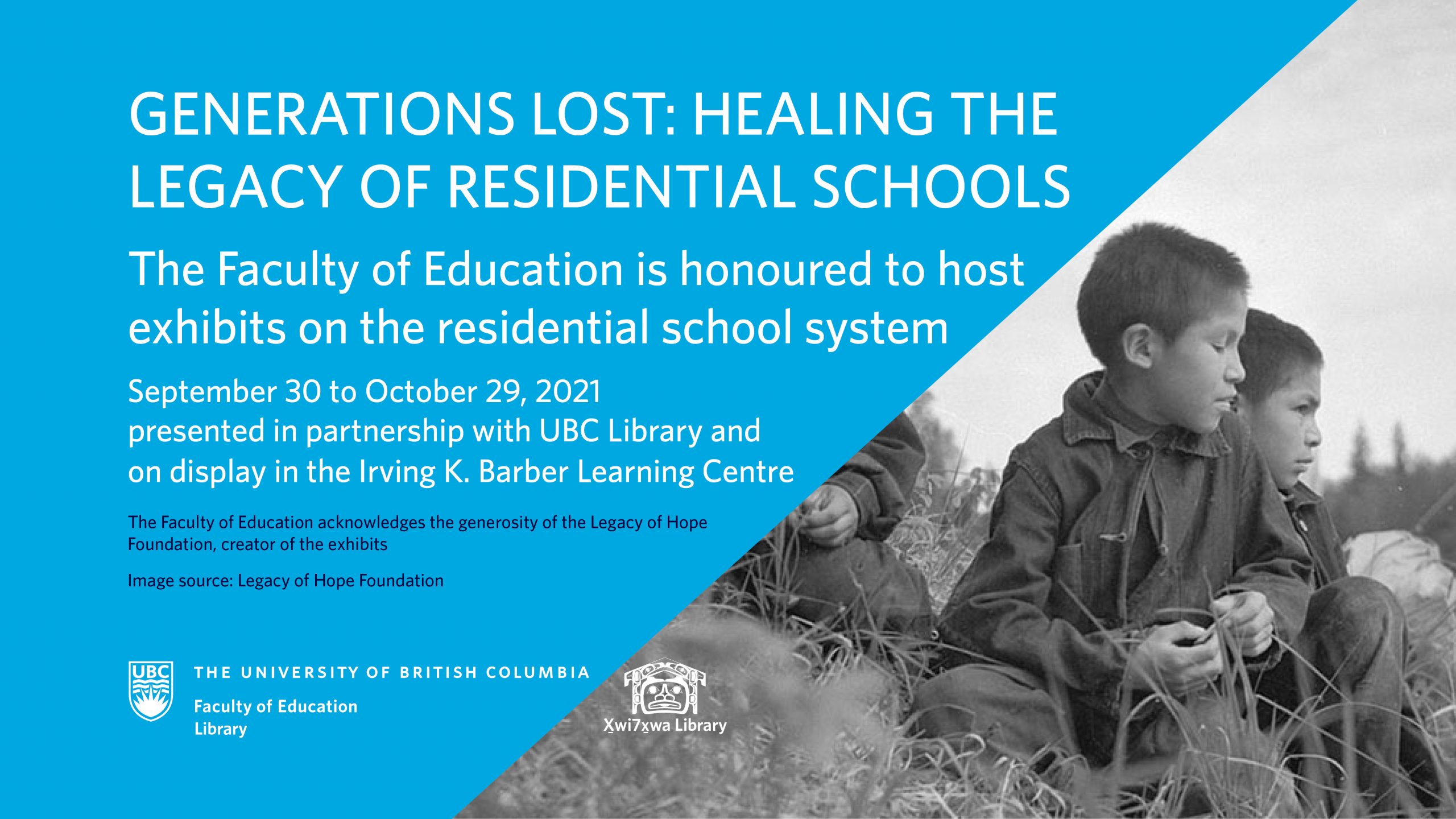Legacy Of Hope Foundation
The Legacy Of Hope Foundation is a national Indigenous charitable organization with the mandate to educate and create awareness and understanding about the residential school system, including intergenerational impacts, such as the removal of generations of Indigenous children from their families, including the Sixties Scoop, and the post-traumatic stress disorders that many First Nations, Inuit, and Métis continue to experience. The Foundation also works to address racism, foster empathy and understanding, and inspire action to improve the situation of Indigenous peoples today.
For more than a decade, the Legacy of Hope Foundation has worked with Survivors, Indigenous communities, researchers, curators and educators to develop resources to increase public awareness and knowledge of the history and legacy of the Indian Residential School System. 100 Years of Loss: The Residential School System in Canada is one of the Foundation’s education programs.
Exhibits
The Faculty of Education is honoured to host two groundbreaking exhibits on the residential school system. The exhibits are presented in partnership with UBC Library and on display in the Irving K. Barber Learning Centre. The Faculty acknowledges the generosity of the Legacy of Hope Foundation, creator of the exhibits.
- Bi-Giwen: Coming Home, Truth Telling from the Sixties Scoop
The first of its kind, this exhibit explores the experiences of Survivors of the Sixties Scoop, which began in the 1960s, where Indigenous children were taken from their families, often forcibly and fostered and/or adopted out to non-Indigenous homes often far away from their communities and some across the globe.Developed with input from the National Indigenous Survivors of Child Welfare Network, this innovative and challenging exhibition features the first-person oral testimonies of twelve Indigenous Survivors of the Sixties Scoop, and reflects upon their pain, loss but also their enduring strength, courage and resilience.
- Generations Lost: Healing the Legacy of Residential Schools
This exhibit contains photographs, documents, text panels and artifacts from the 1880s to the present day. The exhibit moves through the process of leaving home, arriving at school, school activities and more. A section on the children who never returned home, as well as a section on contemporary role models, provides a wide range of perspectives.
Complimentary
Members of the public can access the exhibits free of charge.
Location
The exhibits are on display within the level two foyer of the Irving K. Barber Learning Centre.
Disability access information can be found here.
Address
Irving K. Barber Learning Centre
1961 East Mall, Level 2, Foyer
Vancouver, BC
V6T 1Z1
Exhibit Dates
September 30 to October 29, 2021
Reception
Tuesday, October 19, 2021
6:00 to 8:00 pm PDT
Virtual
To RSVP, visit the reception registration page.
Crisis Line
The National Indian Residential School Crisis Line is available 24-hours a day for former residential school students: 1.866.925.4419
This website contains subject matter that may be disturbing to some visitors, especially to Survivors of the residential school system. Please call the crisis line if you or someone you know is triggered while reading the content of this website, or experiencing pain or distress as a result of their residential school experience.
